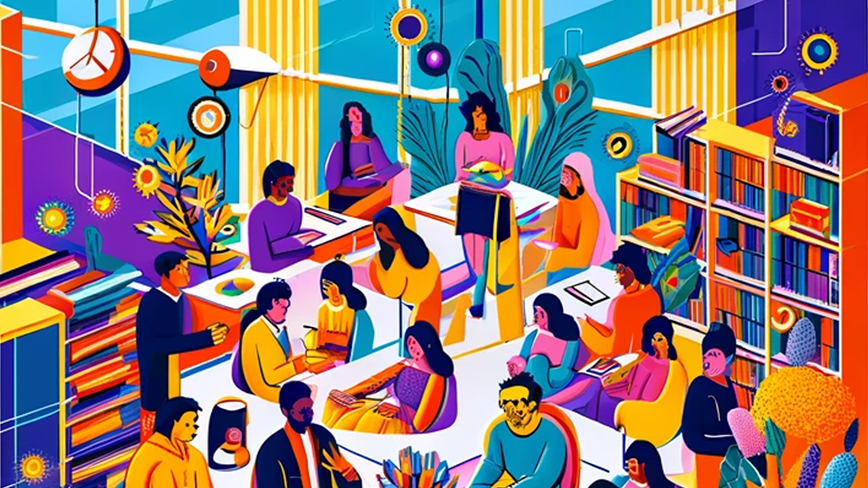PhD IMPACT – safe spaces for open dialogue on gender-related issues

Female doctoral students are particularly vulnerable when it comes to inappropriate behaviour and sexual harassment. The PhD IMPACT initiative hopes to create a safe space for doctoral students to talk openly through workshops. The idea is to give them tools and knowledge about where they can get support and help.
Female doctoral students are particularly vulnerable – this is shown in the report by Anna Wahl and Åsa-Karin Engstrand that Head of School Amelie Eriksson Karlström wrote about in last week's CBH News . The report shows that almost 30 per cent of KTH's female doctoral students have had experience of someone making unpleasant sexual innuendos.
This is not news to the working group behind PhD IMPACT, an independent initiative from different parts of KTH staff – HR, Equality Office, professors and doctoral students. The goal is to promote a welcoming and inclusive environment and create safe spaces for open dialogue on gender-related issues.
“Both Fred and I have taken courses on gender equality – it's an important issue! We had a desire to do something more than simple actions in everyday life," says Andressa Mazur, a doctoral student in Chemical Engineering and one of the team behind the workshops.
In 2024, PhD IMPACT will organise a number of workshops for doctoral students.
“As a doctoral student, many feel indebted to their supervisor or university, and at the same time have a sense of powerlessness. Therefore, it is unfortunately common that much of what happens is not reported. They are simply afraid of losing current or future opportunities," says Fred Marques Penha, Assistant Professor of Chemical Engineering.
What is the aim of the workshops?
“It is important that doctoral students have an opportunity to reflect and make their voices heard. To let them know that they are not alone. We want to create a safe space for doctoral students where they can talk openly about these things. They should be able to leave these workshops feeling that they have tools to deal with a sometimes difficult work environment and know where to seek support and help," says Sara Leoni, HR administrator and member of the JML group at CBH.
“This is an opportunity for knowledge exchange and for them to be able to reflect and ask questions. They also feel that they have a future at KTH, because the sad thing is that you might want to leave because you don't feel welcome," she says.
The first workshop took place in January with the topic "How to recognise discrimination". Workshop number two takes place on 12 March and is entitled 'Gender inequality in everyday academic life'.
How many workshops have you planned?
“We plan to have five in total during the year, approximately every two months. There are some ideas for topics, but we also try to take into account the topics that participants bring to the discussions, to tailor the workshops to their needs.”
Who can you turn to if you are victimised?
“First to your immediate manager, if possible. If you do not feel that this is possible, you can talk to your manager's manager or your HR contact. You can of course also talk to the union's safety representative. As a doctoral student, you can also get support from the FA or PhD admin. The PhD Chapter, which is an organisation for PhD students, can also help. "The most important thing is to actually ask for help, because you are entitled to it," says Sara Leoni.
Text: Åsa Karsberg
